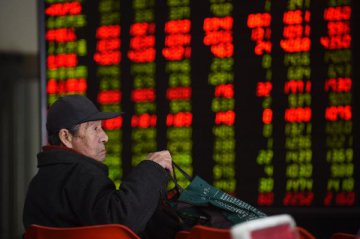Australia and New Zealand Banking Group (ANZ):
ANZ has chosen to walk away from a potential $600 million deal with one of China’s largest multinational corporations, after New Zealand’s foreign investment regulator raised concerns about the giant’s shadowy structure. New Zealand’s Overseas Investment Office in late December said it would block ANZ’s attempt to sell its vehicle financing arm UDC Finance to China’s HNA Group, after the conglomerate — which has substantial investments in Australia — failed to give clear information about its ownership and control interests. Although HNA Group had the option of appealing the NZ regulator’s decision, ANZ (ANZ) has now used a clause in its sale agreement, stipulating a contracted time frame for the deal to be completed, to walk away from the sale. The decision gives ANZ an opportunity to find a different buyer for the business. The bank has struck deals to sell 16 business divisions over the past two years, including the recent $3.8bn sale of its life insurance, pensions and investments businesses.
JB Hi-Fi Limited (JBH):
An aggressive defence against online behemoth Amazon appears to have paid off for JB Hi-Fi, with analysts at Morgan Stanley upgrading the consumer electronics retailer after it enjoyed a better-than-expected Christmas trading period. Shares in JB Hi-Fi jumped more than 6 per cent to $28.49, an 11-month high, in early trade on Thursday, before falling back slightly to close up 4.44 per cent. From its November low to yesterday’s high point shares in the consumer electronics retailer surged 30 per cent, as Amazon’s much-hyped entry to the local market failed to live up to expectations. Morgan Stanley analysts yesterday upgraded the retailer to overweight from equal-weight, with a price target of $32 on “strongerthan-expected near-term trading performance and greater confidence in longer-term margins”. JB Hi-Fi should be able to navigate Amazon’s entry into Australia well, the analysts said, due to its market-leading positioning and attractive store economics.
Michael Hill International Ltd (MHJ):
Jewellery retailer Michael Hill continues to review its struggling US operations after a sharp drop in sales there, as Australian stores turned in a flat performance. The weak Australian and US sales figures offset solid growth in New Zealand and Canada. In a half-year trading update, Michael Hill said US sales to December 31 tumbled 10 per cent. The chain (MHJ) said it was closely monitoring its US business given the “poor” performance. Meanwhile sales in Michael Hill’s 172 Australian stores remained flat over the period. Overall group revenue grew 4.7 per cent to $341.5 million compared to the same period last year, boosted by the company’s New Zealand and Canada operations as well as growth in sales in its Emma & Roe brand. Michael Hill same store sales rose only 0.7 per cent, in Australian dollar terms.
Orica Ltd (ORI):
Orica appears to have snatched more business from rival explosives manufacturer Incitec Pivot, after Gina Rinehart's Roy Hill indicated it would not renew Incitec's contract to supply explosives when it expires next month. Roy Hill's decision comes barely one month after BHP confirmed it would not renew Incitec's contract to supply ammonium nitrate prill to BHP's Western Australian iron ore division when the contract expires in November 2019. Loss of the BHP contract will deliver a combined $35 million hit to Incitec's net profits over the 2020 and 2021 financial years, and Incitec said this week the loss of the Roy Hill contract would deliver a further $81 million hit to net profits after tax over the next five years. The biggest impact from the loss of the Roy Hill contract will come in 2020. There has been no confirmation of which company has replaced Incitec as the supplier of explosives to Roy Hill nor BHP, but it is believed to be Orica, which has recently started production from its new Burrup ammonium nitrate plant close to BHP and Roy Hill's operations in the Pilbara region of Western Australia. Orica declined to comment on Friday when asked if it had won the Roy Hill contract, but its shares were 20¢ higher at $19.05 in morning trade on Friday. Conversely, Incitec shares were almost 5 per cent lower in early trading, with the stock 19¢ lower at $3.67.
Telstra Corporation Ltd (TLS):
Telstra has launched a new technology in Australia that enables millions of devices to send small volumes of data at low power, allowing businesses to become connected to the Internet of Things (IoT). The technology, called narrowband, can be used to connect any number of devices to the internet, from irrigation systems for commercial farming all the way to home pool filters. Telstra already has Cat M1 technology spanning 3 million square kilometres, which it introduced in 2017. This is also an IoT technology but is more suited to personal health monitors, and monitoring vehicle performance, with much faster speeds. Narrowband was expected to be popular in the transport and logistics, mining, manufacturing and agricultural industries due to the volume of the data that could be handled, Telstra chief operations officer Robyn Denholm said. Telstra shares are up 0.5 per cent on Friday.
Virgin Australia Holdings Ltd (VAH):
After years of speculation and minority shareholder angst, Virgin Australia last year confirmed what many had long taken for granted: privatisation was on the cards. With less than 9 per cent of its shares traded freely on the stockmarket, the carrier is firmly in the control of its five largest investors, and in November chair Elizabeth Bryan said the board was acting in the best interests of all shareholders by exploring privatisation. Etihad Airways owns 21 per cent of Virgin, along with Singapore Airlines (20 per cent), Chinese conglomerates Nanshan (19.9 per cent) and HNA Group (19.8 per cent), and Richard Branson's Virgin Group (10 per cent). Going private would free Virgin from the burden of quarterly reporting, and the accompanying scrutiny, as it tries to fly out of a bumpy transformation period. But some say its public company structure has kept the competing interests of Virgin's rival airline owners in check. Virgin shares were down 1.9 per cent on Friday.
(Source: AIMS)
ANZ has chosen to walk away from a potential $600 million deal with one of China’s largest multinational corporations, after New Zealand’s foreign investment regulator raised concerns about the giant’s shadowy structure. New Zealand’s Overseas Investment Office in late December said it would block ANZ’s attempt to sell its vehicle financing arm UDC Finance to China’s HNA Group, after the conglomerate — which has substantial investments in Australia — failed to give clear information about its ownership and control interests. Although HNA Group had the option of appealing the NZ regulator’s decision, ANZ (ANZ) has now used a clause in its sale agreement, stipulating a contracted time frame for the deal to be completed, to walk away from the sale. The decision gives ANZ an opportunity to find a different buyer for the business. The bank has struck deals to sell 16 business divisions over the past two years, including the recent $3.8bn sale of its life insurance, pensions and investments businesses.
JB Hi-Fi Limited (JBH):
An aggressive defence against online behemoth Amazon appears to have paid off for JB Hi-Fi, with analysts at Morgan Stanley upgrading the consumer electronics retailer after it enjoyed a better-than-expected Christmas trading period. Shares in JB Hi-Fi jumped more than 6 per cent to $28.49, an 11-month high, in early trade on Thursday, before falling back slightly to close up 4.44 per cent. From its November low to yesterday’s high point shares in the consumer electronics retailer surged 30 per cent, as Amazon’s much-hyped entry to the local market failed to live up to expectations. Morgan Stanley analysts yesterday upgraded the retailer to overweight from equal-weight, with a price target of $32 on “strongerthan-expected near-term trading performance and greater confidence in longer-term margins”. JB Hi-Fi should be able to navigate Amazon’s entry into Australia well, the analysts said, due to its market-leading positioning and attractive store economics.
Michael Hill International Ltd (MHJ):
Jewellery retailer Michael Hill continues to review its struggling US operations after a sharp drop in sales there, as Australian stores turned in a flat performance. The weak Australian and US sales figures offset solid growth in New Zealand and Canada. In a half-year trading update, Michael Hill said US sales to December 31 tumbled 10 per cent. The chain (MHJ) said it was closely monitoring its US business given the “poor” performance. Meanwhile sales in Michael Hill’s 172 Australian stores remained flat over the period. Overall group revenue grew 4.7 per cent to $341.5 million compared to the same period last year, boosted by the company’s New Zealand and Canada operations as well as growth in sales in its Emma & Roe brand. Michael Hill same store sales rose only 0.7 per cent, in Australian dollar terms.
Orica Ltd (ORI):
Orica appears to have snatched more business from rival explosives manufacturer Incitec Pivot, after Gina Rinehart's Roy Hill indicated it would not renew Incitec's contract to supply explosives when it expires next month. Roy Hill's decision comes barely one month after BHP confirmed it would not renew Incitec's contract to supply ammonium nitrate prill to BHP's Western Australian iron ore division when the contract expires in November 2019. Loss of the BHP contract will deliver a combined $35 million hit to Incitec's net profits over the 2020 and 2021 financial years, and Incitec said this week the loss of the Roy Hill contract would deliver a further $81 million hit to net profits after tax over the next five years. The biggest impact from the loss of the Roy Hill contract will come in 2020. There has been no confirmation of which company has replaced Incitec as the supplier of explosives to Roy Hill nor BHP, but it is believed to be Orica, which has recently started production from its new Burrup ammonium nitrate plant close to BHP and Roy Hill's operations in the Pilbara region of Western Australia. Orica declined to comment on Friday when asked if it had won the Roy Hill contract, but its shares were 20¢ higher at $19.05 in morning trade on Friday. Conversely, Incitec shares were almost 5 per cent lower in early trading, with the stock 19¢ lower at $3.67.
Telstra Corporation Ltd (TLS):
Telstra has launched a new technology in Australia that enables millions of devices to send small volumes of data at low power, allowing businesses to become connected to the Internet of Things (IoT). The technology, called narrowband, can be used to connect any number of devices to the internet, from irrigation systems for commercial farming all the way to home pool filters. Telstra already has Cat M1 technology spanning 3 million square kilometres, which it introduced in 2017. This is also an IoT technology but is more suited to personal health monitors, and monitoring vehicle performance, with much faster speeds. Narrowband was expected to be popular in the transport and logistics, mining, manufacturing and agricultural industries due to the volume of the data that could be handled, Telstra chief operations officer Robyn Denholm said. Telstra shares are up 0.5 per cent on Friday.
Virgin Australia Holdings Ltd (VAH):
After years of speculation and minority shareholder angst, Virgin Australia last year confirmed what many had long taken for granted: privatisation was on the cards. With less than 9 per cent of its shares traded freely on the stockmarket, the carrier is firmly in the control of its five largest investors, and in November chair Elizabeth Bryan said the board was acting in the best interests of all shareholders by exploring privatisation. Etihad Airways owns 21 per cent of Virgin, along with Singapore Airlines (20 per cent), Chinese conglomerates Nanshan (19.9 per cent) and HNA Group (19.8 per cent), and Richard Branson's Virgin Group (10 per cent). Going private would free Virgin from the burden of quarterly reporting, and the accompanying scrutiny, as it tries to fly out of a bumpy transformation period. But some say its public company structure has kept the competing interests of Virgin's rival airline owners in check. Virgin shares were down 1.9 per cent on Friday.
(Source: AIMS)






















Latest comments